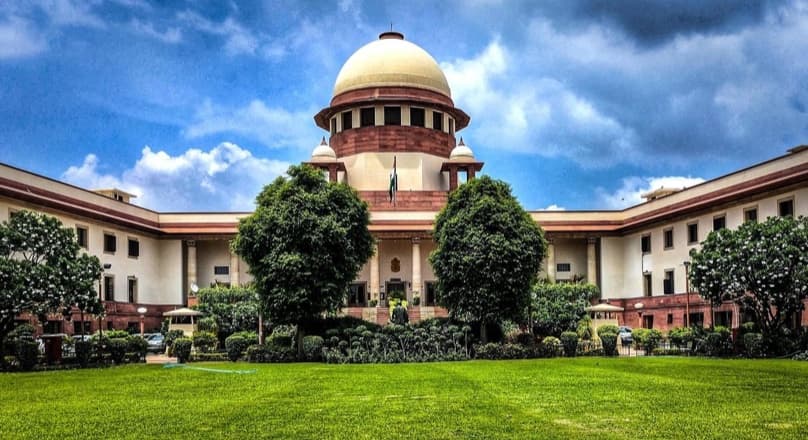
Kolkata Rape and Murder Case: Supreme Court Establishes Medical Safety Task Force
Top court steps in to address safety concerns of medical professionals following brutal Kolkata incident
India’s highest court has responded to the shocking case of a trainee doctor who was raped and murdered in Kolkata by setting up a national task force aimed at ensuring the safety of healthcare workers.
The movefollows widespread outrage and protests across the country. The Supreme Court, led by Chief Justice Dhananjaya Yeshwant Chandrachud, has convened a 10-member panel of senior doctors to draft guidelines aimed at protecting medical professionals and healthcare workers nationwide.
The court took up the case on its own initiative (suo motu), with the three-judge bench criticising the government’s lack of action, stating that they "cannot wait for another rape" to prompt change.
The court also instructed the federal Central Bureau of Investigation (CBI) to submit a report by Thursday on the current status of its investigation.
The 31-year-old victim, a trainee doctor at RG Kar Medical College and Hospital in Kolkata, West Bengal, was found dead on August 9.
Her postmortem revealed she had been sexually assaulted and suffered 16 external and nine internal injuries, including head and neck trauma consistent with strangulation.
In response to the crime, doctors across India have staged protests, refusing to treat non-emergency patients, and demanding a safer work environment and a thorough investigation.
Although a civic volunteer has been arrested, the Calcutta High Court transferred the case to the CBI after the victim’s colleagues and family asserted that more than one person was involved in the attack.
Explaining the Supreme Court's decision to intervene, Chief Justice Chandrachud said: “We took up this matter suo motu because this is not just a horrific murder case in a Kolkata hospital, but it highlights the systemic issue of doctor safety across India.”
He further noted that medical professionals are increasingly vulnerable to violence, with women doctors being particularly at risk due to entrenched patriarchal biases.
“As more women join the workforce, the nation cannot afford to wait for another rape before enacting change,” he stated.
Protesters have referred to the victim as Abhaya, meaning “fearless,” though Indian law prohibits the public disclosure of a sexual assault victim’s name.
Justice Chandrachud also directed all states to gather data on the number of security personnel at hospitals and the availability of resting rooms for medical staff, with a report to be submitted within a month.
In 2022, the government introduced measures to protect doctors, including criminalising violence against healthcare professionals and imposing penalties on offenders.
Despite this, violence against doctors remains widespread, with a survey by the Indian Medical Association revealing that 75 per cent of doctors have experienced some form of violence.
Justice Chandrachud emphasised that safeguarding doctors, particularly female doctors, is a matter of “national interest.
“We are deeply concerned about the lack of safe conditions for doctors. Although there are state laws to protect medical professionals, they do not address the systemic issues. We need a national consensus and a standardised protocol for safe working conditions,” he said.
“The task force will examine the safety and well-being of medical professionals, along with other related issues.”
The bench also addressed the vandalism that occurred when a mob attacked the hospital as protesters, primarily women, gathered for a midnight march on August 15
“The West Bengal government was responsible for maintaining law and order and protecting the crime scene,” the bench remarked, expressing its inability to understand why the state failed to do so.
The ongoing strike by junior doctors has led to the closure of outpatient departments and the disruption of elective services. Justice Chandrachud urged the protesting doctors to return to work.
“The absence of doctors from their duties severely impacts those who most need medical care,” he warned.
For any enquiries or information, contact ask@tlr.ae or call us on +971 52 644 3004. Follow The Law Reporters on WhatsApp Channels.